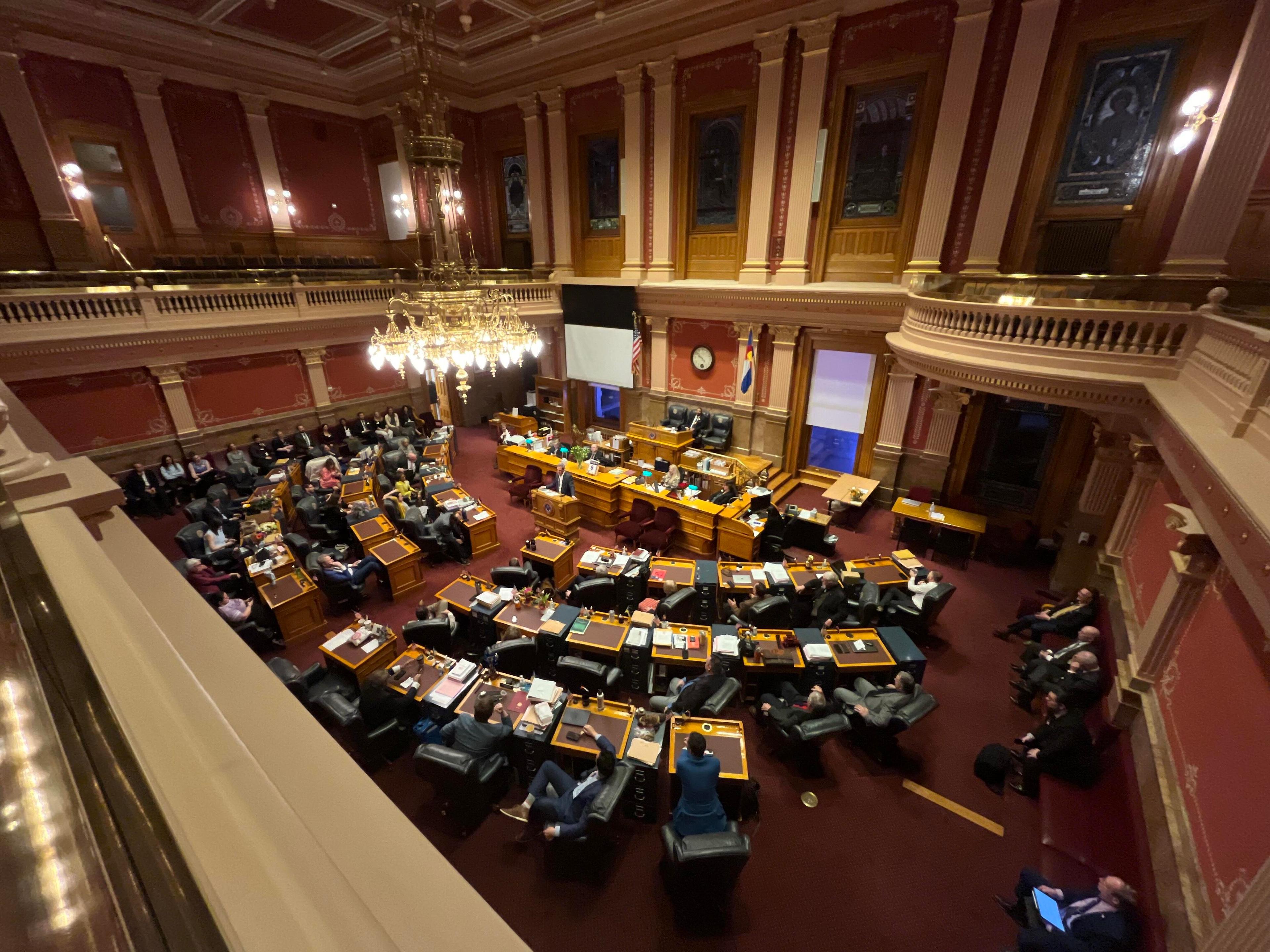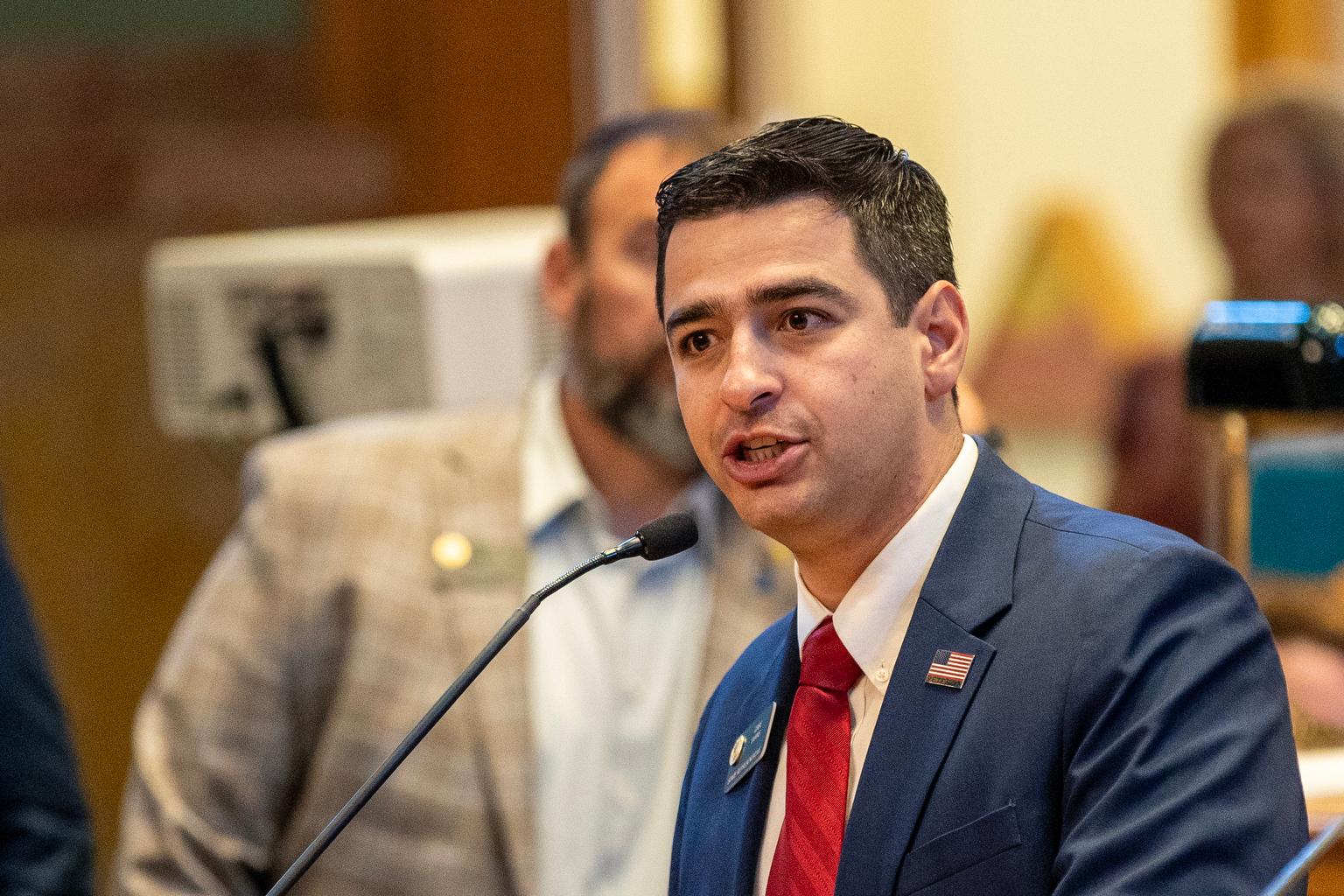Weld County Sheriff Steve Reams has been sued by a handful of inmates for not taking enough precautions to prevent a wildly fast-moving COVID-19 outbreak inside the jail.
The lawsuit filed on Wednesday by the American Civil Liberties Union of Colorado and the Denver-based civil rights firm Killmer, Lane and Newman alleges the sheriff has “openly eschewed the seriousness of the pandemic” and put certain inmates at risk by not releasing them from the jail so they can properly self-isolate.
The seven male inmates named in the class action are all pre-trial, meaning they haven’t yet been convicted of anything, or are at the tail-end of sentences. They all have underlying health conditions that put them at higher risk of serious illness from the novel coronavirus.
“COVID-19 is spreading like wildfire through the Weld County Jail, and it appears that only immediate action by this court will change the deadly course of events unfolding there,” the lawsuit said.
To date, Reams told CPR News there were four inmates and eleven sheriff’s deputies who have tested positive. He said the illness could be more widespread though. At one point there were 30 deputies out sick last week and several other inmates are sick inside the jail currently.
Countywide, there are 545 reported positive cases in Weld, with 29 deaths.
The number of people inside the Weld jail has dwindled from March 1, Reams said. There are currently 556 inmates, down from 800. He said the jail has the capacity for 1,077 people.
Lawyers are asking a judge to require Sheriff Reams to physically distance inmates inside the facility so they can remain 6 feet apart at all times, to professionally clean and sanitize the jail daily, to provide hygiene supplies and masks and gloves to inmates for free and furnish masks for people working in the kitchen.
The Weld County Attorney did not have any immediate comment on the lawsuit filed Wednesday.
Reams is among dozens of sheriffs across the state grappling with how to prevent the contagious — and sometimes deadly — coronavirus from spreading inside jails. In El Paso County, which has among the largest jails in the state, at least eight deputies tested positive for the disease and one 41-year-old deputy died.
In March, Gov. Jared Polis issued guidance to law enforcement, prosecutors, public defenders, judges and sheriffs that recommended cooperation to reduce jail populations and postpone court dates, if possible, to reduce the spread of COVID-19 in detention centers.
Many sheriffs and prosecutors are releasing people from jail so the people who remain can spread out more and it’s easier to keep the facilities clean. Jail populations are down in Arapahoe, Denver, Boulder and Jefferson counties due to purposeful releases of certain inmates.
Jefferson County Sheriff Jeff Shrader said this week he was only accepting new inmates charged with victims’ rights crimes — which includes domestic violence and crimes against other people.
Shrader has almost cut his jail population in half in the last month, from 1,182 inmates on March 6 to 674 earlier this week.
“While it’s a significantly reduced population, we have not seen an increase in most segments of crime since then,” Shrader said. “I know that it’s a scary situation. It has gotten to me … just based on the numbers and what we see in other places … We are working diligently to make sure our staff is safe, their families are safe, and we’re in the position where we can best protect people and fulfill our mission.”
A similar effort was undertaken in Boulder and Denver, where prosecutors, sheriffs and public defenders got together and went line by line through jail populations to determine who could be let out early or who could be given a personal recognizance bond with a promise to return to a future court date.
“We tried to reduce the jail populations while also looking at public safety and trying to balance those two,” said Boulder District Attorney Michael Dougherty.
Reams and Weld County DA Michael Rourke have not gone through a similar process, much to the chagrin of public defenders and civil rights lawyers.
Advocates have beseeched the state’s chief judge to issue statewide guidance to reduce jail populations and take other steps to stop the spread of coronavirus, in part, they say because the policies are so inconsistent around the state.
Lawyers also attempted to get the Colorado Supreme Court to weigh in on a policy, but justices declined that petition earlier this week.
Reams said the jail population is lower than usual because Weld County judges have granted more PR bonds and law enforcement officers are issuing more summons for low-level crimes rather than arresting and booking someone in jail.
Reams has placed everyone in the jail currently in a 14-day isolation lockdown to try and contain the illness — this means inmates can’t move around the jail freely and have to remain with the people they have been bunking with all along. Reams said not every unit has a sink, where inmates can wash their hands, so he allows them to use facilities together so they may not make another person sick.
Asked how it is to be on the frontlines of this pandemic, Reams said it was “terrible.”
“I’m asking deputies each and every day to walk into an environment where they know they could be infected, they could take that infection home to their family, they could be an asymptomatic carrier,” he said. “And those interactions are a necessity for law enforcement … When it comes to a jail population, there is only so much you can do.”









